
Vatican City, Jul 4, 2018 / 08:24 am (CNA/EWTN News).- Since 2014 international charity organization Aid to the Church in Need has spent some 40 million euros [$46.6 million] funding relief and reconstruction efforts in Iraq, with the majority of support going toward basic needs such as housing.
However, according to Thomas Heine-Geldem, executive president of Aid to the Church in Need (ACN), now that the international community chipping in to rebuild Christian villages destroyed when ISIS took over the Nineveh Plains in 2014, the organization’s primary focus will shift from funding basic reconstruction to restoring religious structures such as churches and monasteries, many of which were desecrated and burned under ISIS rule.
With nations such as Hungary, which has long supported for reconstruction efforts in Iraq, and the United States offering financial help, ACN can take a step back and focus on their “pastoral vocation,” Heine-Geldem said, noting how ACN was founded as a means of providing both spiritual and material help to Christians who are persecuted or living in poverty.
The next stage in the rebuilding process in Iraq, then, will center “on the renovation of destroyed churches, there are many, destroyed seminaries and destroyed monasteries. That’s back to our original vocation,” Heine-Geldem said.
In June the United States Agency for International Development (USAID) pledged to give some $10 million to two aid organizations working in Iraq, one of which is Catholic Relief Services, and an additional $25 million will be given later to support “persecuted communities” in Iraq, specifically Christians returning to the Nineveh Plains and Yazidis in Sinjar.
So far, structures being built or restored as part of this “pastoral vocation” include a pastoral center in the village of Kirkuk; a church in each of the villages of Teleskuf, Qaraqosh and Bartella; three convents for Dominican sisters serving in Bartella and Qaraqosh; and the Holy Family orphanage in Qaraqosh.
Representatives from ACN will be making visits to both Iraq and Syria within the next few months to determine what the needs are and to discuss with local ecclesial leaders which structures should be taken up next.
Heine-Geldem was present alongside other ACN representatives, including Cardinal Mauro Piacenza, major penitentiary of the Vatican’s Apostolic Penitentiary and president of ACN international, at the July 4 presentation of the organization’s annual activity report for 2017.
According to the numbers in the report, last year ACN spent the majority of funds on projects in mission territories, supporting some 5,357 projects in 149 countries. The rest went toward administrative costs, advertising and fundraising.
The organization, which has offices in 23 countries around the world, had around 368,000 benefactors in 2017, with a large portion of funding also coming from Catholics who donated in exchange for a Mass intention for themselves or a loved one.
In total, ACN gave around 84.6 million euro [$98.5 million] in 2017 to support their mission projects, most of which are in Africa, followed by Asia, Latin America, Eastern and Central Europe, and the Middle East.
In terms of where most of the money is spent, Africa again took the lead, followed by the Middle East, which Heine-Geldem said was the result of a concrete decision by ACN to provide “exceptional” support to the region to help Christians stay.
“If Christians are not helped to stay there, they will be forced to leave,” he said, adding that “if we don’t have Christians in the Middle East, there is no need to help the pastoral work.”
Most of ACN’s funding in Iraq is going toward their Nineveh Plains Reconstruction Project, and providing spiritual support through Masses, formation and catechesis, as well as food and transport.
The reconstruction project, Heine-Geldem said, has also helped bring different Christian rites in Iraq together and has allowed them to interact in a way that was not typical in the past.
“We have created a platform,” he said, noting that the committee for the project is composed of leaders from the Syriac Catholic Church, the Chaldean Catholic Church and the Syrian Orthodox Church.
“This is very, very important, because in addition to all these struggles, these tragedies, all this ethnic and religious persecution, we have still found a lack of experience in cooperation among Christians in the Middle East,” he said, noting that the committee as a body evaluates the needs and decides which villages or churches to focus on next.
In Syria, which is second on the list of Middle Eastern aid recipients for ACN, most of the funding still comes in the form of basic humanitarian aid since the country is still at war.
“We still have war, we still have uncertainty, and people still need emergency help in order enable Christians there to remain or to entice them to return,” Heine-Geldem said, reiterating that the organization’s main priority is to help Christians stay in their home country.
“This is not a political statement about immigration, but it is our vocation to do that,” he said, explaining that from even from a geopolitical view, they don’t want the area to become “totally Christian free.”
“Christians are a good backbone of society,” he said, noting that many Muslims have told him Christians are needed in the Middle East, because they form the majority of the middle class, and are educated.
In terms of 2018, Heine-Geldem said Syria and Iraq will continue to be a priority, as will the religious freedom report ACN publishes annually, which will be released in November.
Additionally, India will also be a key focus, with particular attention for Catholics who are members of the “Dalit” class, which is the lowest in the caste and whose members are considered “untouchable” and less than human.
These people are “oppressed and neglected by the system,” and they also face increasing religious persecution from the amplified presence of Hindu extremists, Heine-Geldem said, noting that ACN recently launched a campaign to “open the eyes” of the world to what is happening on the ground.
“From what I’ve seen, they really deserve our help. It is a very serious situation.”
 […]
[…]

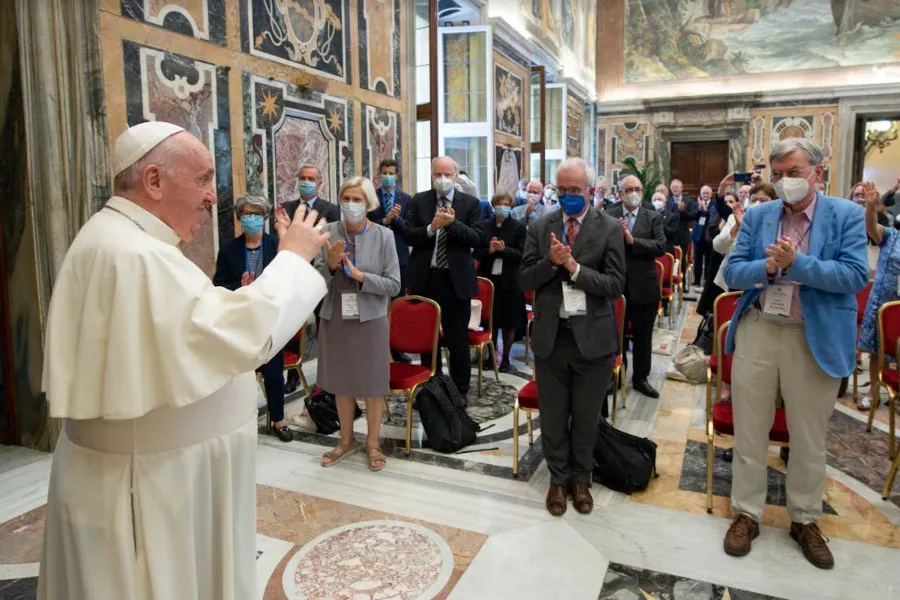
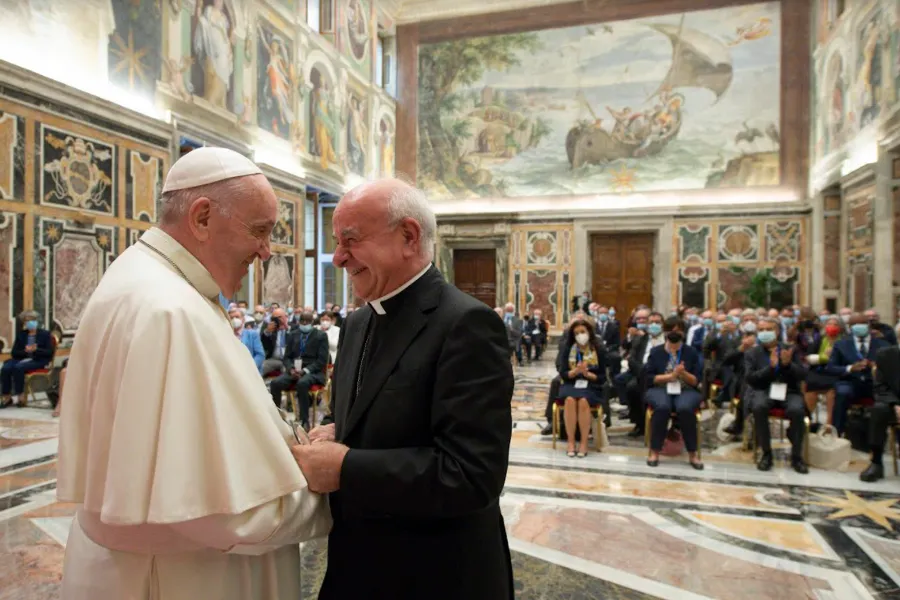
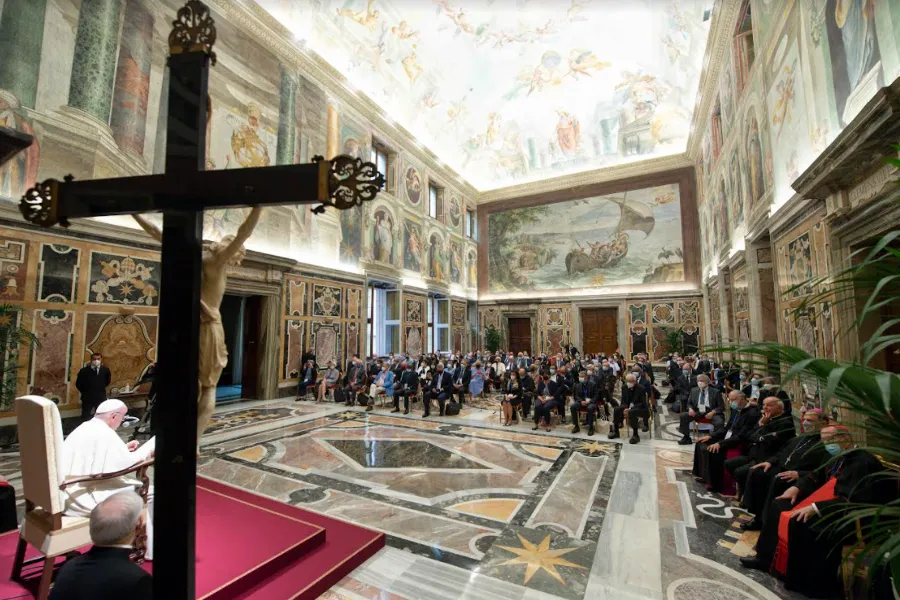
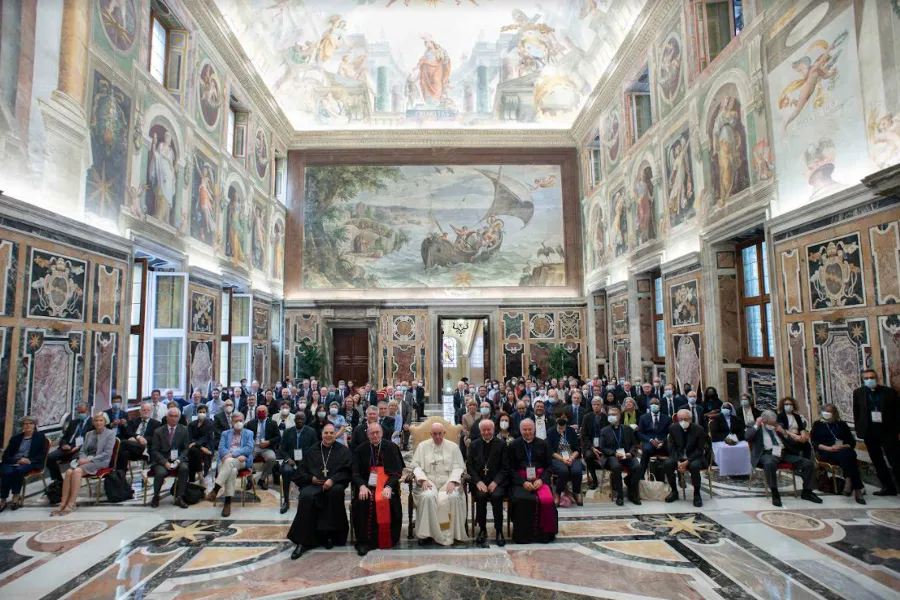
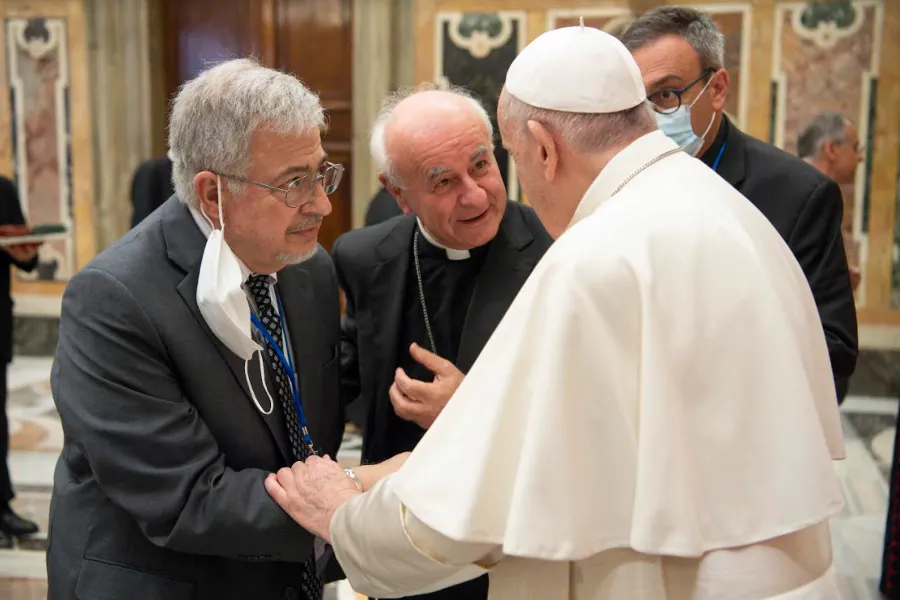
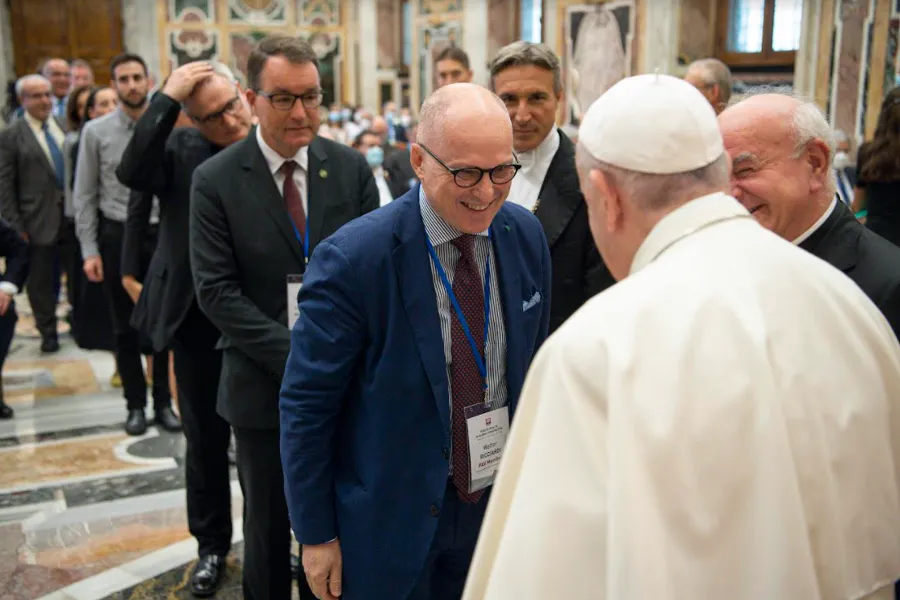






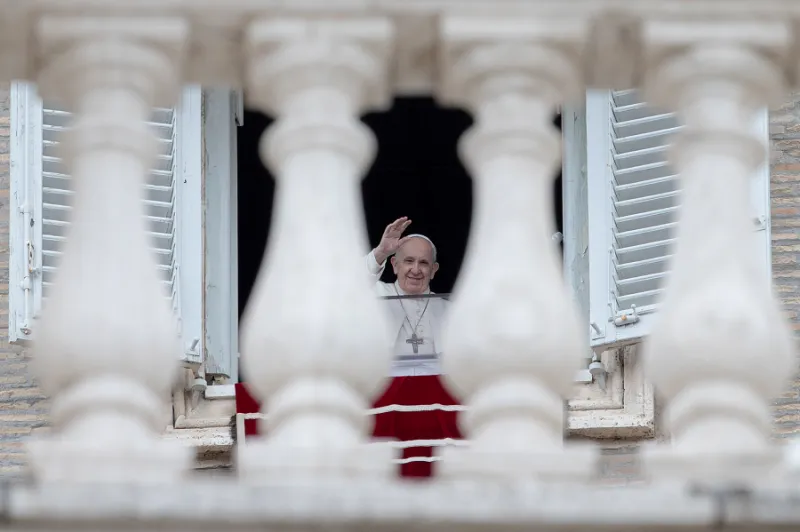
Catholic faithful welcome the strong words, although many do not perceive actions that support such strenuous condemnation. Many of us remain unconvinced. For example, real, live hitmen, Mafia members, in fact all Mafia members were excommunicated by Pope Francis. Then why the withholding of excommunication from Catholic politicians who applaud and legalize government legislation and financial support for abortion, the support for hitmen Planned Parenthood and the like? Why does the Pontiff discourage Catholic prelates who do wish to sanction these politicians? And approve of Archbishop Paglia’s appointment of pro abortion Anglican theologian Nigel Biggar to the Pontifical Academy for Life?. A policy of words sans action that obviously encourages the Catholic laity to vote largely in favor of pro abortion Catholic politicians? If we measure the crime by numbers the aborted infants are infinitely more the victims of murder than Mafia victims. Parity in words doesn’t equate parity in belief, if belief really means to live exactly as we say we believe. Otherwise it’s a lie.
Hope and pray that the Pope’s strong words will further lead him to follow-up with the required strong action in his administration to clean up the Church.
Finally, the Pope is speaking more and more against abortion, and ever more vigorously.
Would that he had done that in the first years of his papacy!!!
The Pope has condemned abortion quite often over the years. I believe that in the early years he might have had a lot of learning to do as a new Pope who had moved in from Argentina.
Mal, re remained silent during the Irish Referendum citing non-interference in internal country affairs. The result was that Catholics perceived he tacitly approved. Then during the US election he openly supported pro-abortion Joe over… interfering and this time with non-tacit approval. Does this resemble honest behavior from a pope, or double-speak from a Free Mason who has a public program but a “hidden” agenda?
Can you prove that our Pope, who is a faithful Catholic and disciple of our Lord, was a freemason? I have seen many such obviously false accusations being made against Pope Francis, and even the Popes before him, and these accusations are kept alive by those who hate Pope Francis.
Catholic faithful welcome the strong words, although many do not perceive actions that support condemnation. Many of us remain unconvinced. For example, Mafia hitmen, indeed all Mafia members were excommunicated by Pope Francis. Then why withhold instruction of the latae sententiae applicability of canon 915 to all Catholic politicians who support even seek to extend abortion? Why does the Pontiff discourage Catholic prelates who do wish to sanction these politicians? And approve of Archbishop Paglia’s appointment of pro abortion Anglican theologian Nigel Biggar to the Pontifical Academy for Life?. A policy of words and no follow-up, except actions that seem to support abortion policy encourage Catholic laity to dismiss doctrine and vote largely in favor of pro abortion Catholic politicians. Parity in words doesn’t equate parity in belief, if belief really means to live exactly as we say we believe.
Pray for wisdom for our Pope that he sees and performs the necessary action to be consistent with his words, and rids the Church of all elements and politicians who support abortion. Give them a chance to renounce abortion and repent. If they do not repent, then they are not Catholics in communion with the Church and, therefore, are not worthy of the Eucharist.
Agreed Ron. I do pray for a just resolution that benefits all.
This second like comment was meant to replace the one above. Ah well, double for the effort. On topic is the challenge of aging and death. Aging is not for the faint of heart (from Thurman Ray Plumlee who wrote Growing Old is Not for the Faint of Heart). Elective euthanasia the easy way out except for judgment and more suffering. Although the pontiff sounds good on the air here, he doesn’t on paper elsewhere. Amoris Laetitia provides the rationale for political expediency based on difficult concrete situations and the primacy of conscience. Moderation, the mitigation of religious rules for sake of societal pluralism. If adultery can be moderately assessed as acceptable why not abortion for the Catholic politician? There is in this an enticing fallacy that subverts [all] revealed moral truth, a religious faux pas. An indiscretion that omits reference to grace, also identified by others in Ch 8. Grace given by Christ exactly to remain faithful within life’s difficult concrete situations. As to growing old I like to look at it other than the cliché a soul trapped in a dying body. Rather an increasingly fine, aging wine ready to be decanted.
It would be interesting to see this latest declaration from the Pope put side by side with another papal soundbite: “I have never refused the Eucharist to anyone.” Let’s wait for the USCCB document coming out this November and check on which one of these statements they will focus their spotlight on or will they give weigh to both? I can’t wait. Even CWR, the rest of the rightist conservative Catholic media, and their constituents, can be weighed in this aspect of their coverage and emphasis of papal tweetable statements to determine their Catholicity, biases, and partisanship.
This is very good news.
(Why is it that with this prelate I am always waiting for the other shoe to drop?)
Those throwaway parts did not go to waste but were in fact essential in the development of the covax
Also euthanasia may one day be our best protection against covid and therefore at that time an ‘act of love’
It’s all coming up roses
Thin gruel.
“treating human life like waste…” Just as Bergoglio did by selling out the Chinese Catholics to their tormentors. Just like he continues to do in embracing the leftist politics of the Democrats Party, globalists, environmentalists, and those who pay homage to the blood stained idol of Pachamama.
Abortion is murder. Murder is evil. Paragraph # 1753 of the Catechism of the Catholic Church states that the end does not justify the means. So, if abortion is murder, and murder is evil, how can an abortion produce the means of a good vaccine for a pandemic? Just asking.
Mal, he remained silent during the Irish Referendum citing non-interference in internal country affairs. The result was that Catholics perceived he tacitly approved. Then during the US election he openly supported pro-abortion Joe over… interfering and this time with non-tacit approval. Does this resemble honest behavior from a pope, or double-speak from a Free Mason who has a public program but a “hidden” agenda? He speaks like a Pope, when there is political gain to be had. In this instance, there are no Stakes at Stake: the referendum passed, Joe was elected.
Dear Pope Francis, your words are encouraging, but they can’t be heard over the din of your, and your hierarchy’s ACTIONS! Don’t expect us to listen to your words and ignore your actions.
Good thing Pope Francis isn’t trying out for Catholic chaplain in a public university.
Are you kidding? Secularists love this guy. Just ask them. A wide range of people hostile to the Catholic faith and to the Gospel LOVE Pope Francis. They are especially good at recognizing double speak and hypocrisy, because they use it themselves.
My allusion escaped you, Timothy.
Timothy – National Catholic Register – English University Accepts Catholic Chaplain Who Tweeted About Abortion.
Cheers.
I am thankful that Pope Francis has spoken out strongly and clearly against the evil that is abortion, and the evil of euthanasia.
Amen. Now that the Pope has once again condemned abortion and euthanasia and declaring that they have excommunicated themselves, it is up to the Bishops and priests to deal with these people as they see fit.
And once again, Francis has taken the easy route by making a public statement that is binding on NO Catholics. In October, he will have a smiling meeting with Biden, and at that time he will say nothing at all about abortion. The emptiness of this papacy is wider and deeper than the Grand Canyon.
Binding on no Catholics? He has made a very clear statement proclaiming that they are EXCOMMINCATED. Just as Jesus called the doctrine-abiding “religious” Pharisees HPOCRITES, without naming a single individual. In fact, our Lord who ate with sinners and drunkards, did not ever condemn a single individual. Why would he? His mission was to SAVE them.
I agree Jesus came to save us sinners. But that doesn’t mean withholding sanctions when needed. As any parent knows, sometimes the most loving thing she can do is discipline her child and/or say “no.” Jesus did give St. Peter and his successors the power to bind. Why give a power if He did not intend it to be used. After N.O. Archbishop Rummel excommunicated local political figures and one mobster for racism, most repented and returned, chastised, to full communion with the Church. He was brave and, IMHO, right. So would be Pope Francis. Not holding my breath, however.